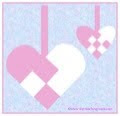 Click the photo for Robert Burns and other Scottish Teaching Resources.
Click the photo for Robert Burns and other Scottish Teaching Resources.Robert (Rabbie) Burns is Scotland's best-loved national poet and lyricist an

d tonight is the celebration of his 250th birthday. In our technological age, has reading of poetry lost its appeal? Is it no longer still fashionable? In Scotland tonight and across the world, many people will be reading and listening to recitations of his poems in the Scots language. His more famous poems include the song
Auld Lang Syne, sung at Hogmanay,
A Red, Red Rose and
Scots Wha Hae.
Rabbie was born in Alloway in Ayrshire in 1759. He spent his youth working on his father's farm, but inspite of his poverty, he was taught by a tutor and was extremely well read. He started to write his poems from a young age. He died at the age of 37 years.
Burns Suppers will be held tonight to commemorate Scotland's best loved bard. Recitation of the Selkirk Grace is made. This is followed by a piper leading the chef carrying the haggis to the table while the guests slowly clap their hands. The chairman recites Burns' famous poem
To A Haggis. When he reaches the line
an cut you up wi'ready slight, he cuts open the haggis with a sharp knife. The haggis is toasted with a wee dram of whisky. The dinner then commences. This consists of Cook-a-leekie soup, Haggis with Champit Tatties (mashed potatoes) and Bashed Neeps (mashed turnips), Typsy Laird (sherry trifle) and a Tassie o' Coffee.

After dinner, speeches on Burns are given. Then the lasses (women) in the audience are addressed and in turn they respond humourously detailing men's foibles! The evening ends with a range of songs and poems. Finally the company stand, link hands and sing
Auld Lang Syne.
One of my favourite poems by Rabbie Burns:
TO A MOUSE
|
|
|
|
|
| Wee sleekit, cow'rin, tim'rous beastie,
O, what a panic's in thy breastie!
Thou need na start awa sae hasty,
Wi bickering brattle!
I wad be laith to rin an chase thee,
Wi murdering pattle!
I'm truly sorry man's dominion
Has broken Nature's social union,
An justifies that ill opinion,
Which makes thee startle
At me, thy poor, earth-born companion.
An fellow mortal!
I doubt na, whyles, but thou may thieve:
What then? poor beastie, thou maun live!
A daimen icker in a thrave
'S a sma request;
I'll get a blessin wi the lave,
An never miss't!
Thy wee-bit housie, too, in ruin!
Its silly wa's the win's are strewin!
An naething, now, to big a new ane,
O foggage green!
An bleak December's win's ensuin.
Baith snell an keen!
Thou saw the fields laid bare an waste,
An weary winter comin fast.
An cozie here, beneath the blast,
Thou thought to dwell,
Till crash! the cruel coulter past
Out thro thy cell.
That wee bit heap o leaves an stibble,
Has cost thee monie a weary nibble!
Now thou's turn'd out, for a' thy trouble.
But house or hald,
To thole the winter's sleety dribble,
An cranreuch cauld!
But Mousie, thou art no thy lane,
In proving foresight may be vain:
The best-laid schemes o mice an men
Gang aft agley,
An lea'e us nought but grief an pain,
For promis'd joy!
Still thou art blest, compar'd wi me!
The present only toucheth thee:
But och! I backward cast my e'e,
On prospects drear!
An forward, tho I canna see,
I guess an fear! |








